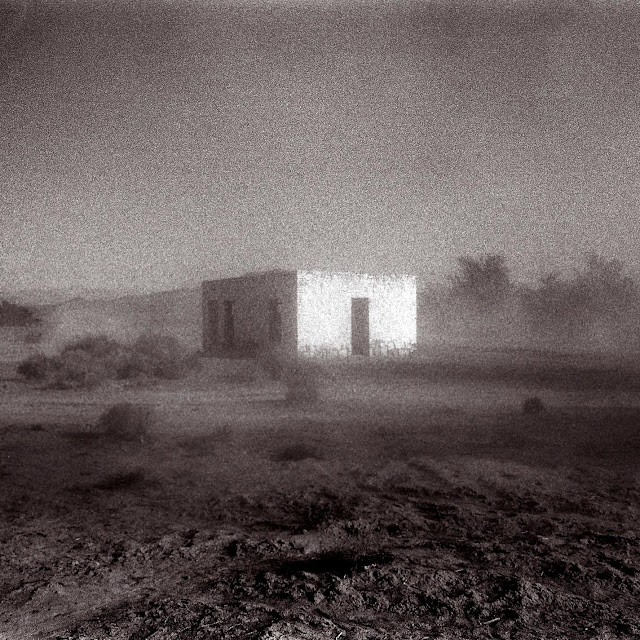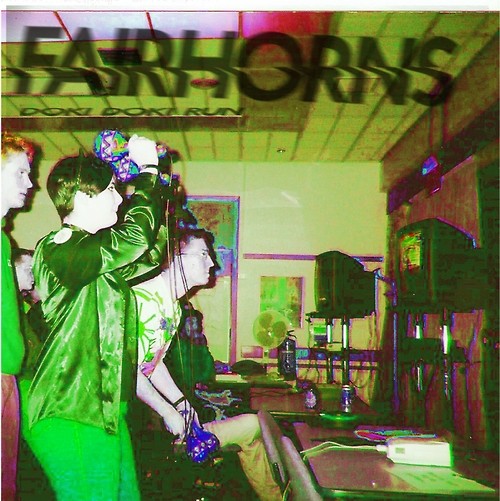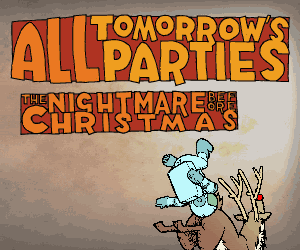
Where The Age of Adz does align with the likes of Illinois and Michigan however is in its off-kilter pop balladry, as a slew of musical pseudo-sagas unveil themselves, drifting awry in the most majestic of ways, I Walked almost tinged with suicidal tendencies over the lack of "a kiss goodbye". Further comparison self-manifests in the idiosyncratic fluttering of a full-blooded orchestra (see the title track, the euphoria-spewing Vesuvius, as well as the devastating I Want To Be Well) as it collides vaguely ebulliently with the scatty electronica of Movement IV: Traffic Shock lifted from The BQE for instance. However, there is a perturbing sonic wealth never before held within a single Sufjan Stevens record coursing through The Age of Adz, as Impossible Soul seems to be the soundtrack to Stevens scrabbling about on faded wooden floorboards desperately trying to recapture his marbles and cram them back upstairs, before Kanye West-esque autotune vox emerge from hypnotic, almost hymnal chants of distraction. And Stevens' furrowing into the warped world of R&B and West comparison doesn't end there, for the seemed instability that amounts throughout is reminiscent of a certain Californian eve, Stevens opting to launch an almost vitriolic tirade on an unknown being in place of Taylor Swift. Vesuvius, with Stevens comparing himself not directly to Mr. West, but to the Neapolitan monster perpetually threatening to bury the boot of Italy, experiences panpipes that encircle increasingly demented wails over five and a half minutes that sound a little like magnets offsetting cog culture in premorbid grandfather clocks, whilst Age of Adz, mutating and metamorphosing over eight exhausting minutes, is almost posthumous in emotion, as a funereally effervescent sheen and exultant repetition of "Gloria!" sees Stevens wallow in a self-pity through which he wades incessantly.
Now That I'm Older is as humbled and remorseful as the mortality of a forever-neglected domestic animal, Stevens at his most lyrically candid, the record serving as a barrage of loathing abuse at times far more personal than any aimed at any which one of Obama's untied States. The electropop tweaks of Get Real Get Right don't quite conjure the envisaged strains of fervour, the brassy fanfare climax affirming Stevens' lyrical self-comfort, whilst All For Myself is all too self-righteously psalm-like in approach. Before the indie apocalypse of 2007, Stevens could quite cohesively have claimed to be contemporary music's greatest composer and above all fantasist, and whilst the banjos have been ditched in the dirt in place of warbling drum machines, ambient electronica, and schizophrenic string sections once more, the ceaseless intimacy of The Age of Adz, scathingly documenting the most soul-destroying of breakups and breakdowns is almost diary-like in subjective honesty. Stevens is bound never to speak of the intricacies behind his demure dismay, nor is it likely to plaster the sensational covers of glossy tabloids. Whilst you can bet the entirety of Wyoming on his next record sounding irrecognisably individual, all that remains to question is what becomes of the broken hearted?
























